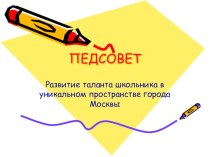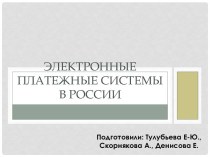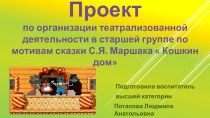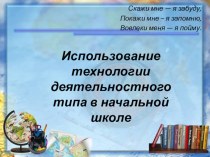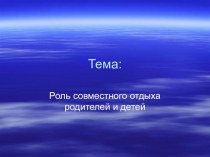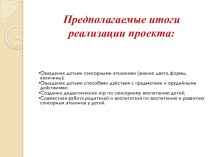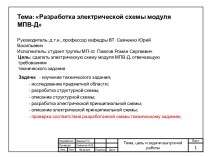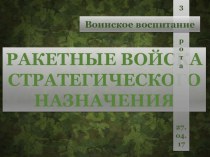Слайд 2
60 years ago, when the rules of the
GATT were negotiated, world energy demand was a
fraction of
what it is today and so were energy prices.1 While energy has always been a
crucial factor in geopolitics, at that time liberalising trade in energy was not a political
priority. The industry was largely dominated by state run monopolies and thus governed by
strict territorial allocation. International trade in energy resources and products was heavily
concentrated, cartelised and controlled by a few multinational companies. This explains why
the rules of the General Agreement on Tariffs and Trade (GATT), and now the World Trade
Organization (WTO), do not deal with energy as a distinct sector.
Слайд 3
This explains why the rules of the General
Agreement on Tariffs and Trade (GATT), and now the
World Trade
Organization (WTO), do not deal with energy as a distinct sector. It was felt that general rules, including the disciplines on state trading, could adequately address trade in energy.
Also, no special agreement on trade in energy has emerged in any of the sectorial agreements
that have been drawn up since the Kennedy Round. Yet since basic WTO rules are applicable
to all forms of trade, they also apply to trade in energy goods and services.
Слайд 4
Certain features of the energy sector make it
different from other industries in many ways.
First, energy goods
have peculiar physical characteristics, which influence means of storage,
transportation and distribution. Then, particular challenges are associated with the existence
of natural monopolies, as well as with the role of state-owned enterprises that dominate some
national energy markets. Furthermore, in the Uruguay Round, WTO Members tried but did
not manage to address effectively the practice of using dual energy prices and export
restrictions.4 They also undertook very limited commitments to grant access to their energy
markets to foreign service operators.
Слайд 5
In recent years, energy topics have reappeared on
the negotiations agenda. There are several
reasons for this:
• Several
energy-exporting countries have recently joined the WTO and others are
currently negotiating their accession5, hence, a substantially larger amount of energy
trade is now in the hands of WTO Members trade.
• Increasing energy needs have led to a growing interest in competition rules and export
restriction practices.
• Progressive unbundling of vertically integrated state-owned entities offers a way for
private operators to enter energy markets.
• The relationship of trade and the environment and the debate on sustainable
development is strongly bound to energy. The correlations between trade, energy and
climate change and the role of biofuels are also bringing attention to the trade in
energy under multilateral trade regulation.
Слайд 6
Energy has been discussed in the ongoing Doha
negotiations. For the first time, Members
have been discussing energy
as a specific services sector.7 Energy issues motivate discussions
on export taxes and export restrictions on raw materials. Another aspect of the ongoing round
of negotiations is a balance between promotion of environmental goods and services and
fossil fuel subsidies. Finally, the energy related negotiations in the current round are focusing
on biofuels. When dealing with biofuels there is a need for a balance between climate change
and energy security concerns, and their impact on agriculture in order to avoid creating new
environmental problems.
Слайд 7
B. The current status of energy in WTO

Law (oil, gas, coal and electricity)
Traditionally, the energy industry
has not distinguished between energy goods and energyrelated
services. This is because energy services were perceived as a value added to energy
goods which could not be dealt with separately. Privatisation and liberalisation of the sector
led to market reform which resulted in a conceptual separation of goods and services trade.
Hence, the need for a clear legal framework to address this distinction emerged.
Oil and solid fuels such as coal clearly fall within the category of goods; they are easily stored
and traded across borders. Crude oil is treated as a global commodity and has been traded
internationally since the 1860s. Trade in crude oil represents the key link between the two
poles of the industry: upstream and downstream, and crude oil prices give signals to both.8
The same applies to natural gas. It is traded across borders via pipelines and although it can be
stored in its gaseous form, it is increasingly being liquefied for the purposes of transportation
to remote regions and for storage.
Слайд 8
It is commonly understood that under the WTO
rules, production of energy goods comes
within the scope of
the General Agreement on Tariffs and Trade (GATT), while energyrelated
services, including transmission and distribution, fall under the scope of the General
Agreement on Trade in Services (GATS).
Слайд 9
II. Electricity
Modern society and production methods are inconceivable
without electricity. It is a
secondary energy source which results
from the conversion of primary sources of energy,
such as coal, natural gas, oil, nuclear power, wind and solar energy. Unlike oil and gas it is
not a physical substance that can be stored easily. Electricity is a physical process which takes
place throughout the cables that carry it and it has to be generated more or less at the same
time as it is being used.
Слайд 10
Its value
chain consists of four activities: generation which
converts energy sources into electricity,
transmission which occurs when electricity
is transmitted over high voltage networks to major
demand centres; distribution which is the process by which transmitted power flows to the
final consumers such as factories and homes; and supply – the name given to the metering,
billing and other services provided to the final consumers
Слайд 11
The WTO law does not contain any specific

provisions on electricity. Given the lack of disciplines on
services under GATT 1947, electricity was defined as a good irrespective of its peculiar physical properties.
Accordingly, electrical energy qualifies as a good under WTO law and is, as such, subject to the rules of the GATT 1994. The same is true for the European Energy Charter and European Community law. Until the end of the 1980s, EC law hardly ever intervened in the organisation of electricity utilities. Although two of the three founding treaties of the EC were specifically directed at regulating energy, electricity was not dealt with explicitly by any of the three Treaties. Thus, for a long time, it remained uncertain whether the provisions of the EC Treaty applied to electricity. It was only in the ‘Almelo’ case in 199415 that the European Court of Justice (ECJ) explicitly
recognised that the rules on the free circulation of goods of the EC Treaty also applied to electricity.
Слайд 12
III. WTO and other instruments of international energy
law
WTO law is only a minor fraction of international
law addressing energy. A wide range of sources and instruments need to be taken into account. Also, it should be recalled that international trade in energy is mainly based upon contracts subject to international private law and commercial arbitration.
Слайд 13
Energy issues around the world today are dealt
with in a fragmented manner and some of the
energy-specific
agreements and institutions are described below.
1. Organisation for Economic Co-operation and Development (OECD)/International Energy Agency (IEA)
OECD is an international organisation, established in 1961, with 30 member countries and a budget of 342.9 million euros (as of 2008). The OECD’s affiliate organisation, the IEA is a forum for coordinating the energy policies of 28 industrialised countries. The IEA, which
addresses all types of energy sources has the following objectives: “improvement of the world energy supply and demand structure, more efficient use of energy, development of alternative
energy sources to reduce dependence on any one source, assistance in the integration of environmental and energy policies and the promotion of cooperative relations between oilproducing
and oil-consuming countries”
Слайд 14
2. Energy Charter Treaty
The Energy Charter Treaty entered
into force in 1998; however ratification by some Members
is still pending. Several of the WTO Members engage in energy cooperation under this treaty treaty. The ECT covers various issues related to investments and investor relations. The main elements of the ECT include: ‘investment protection (e.g. by granting investors nondiscriminatory treatment – national treatment and most-favoured nation treatment –compensation in case of expropriation and other losses, free transfer of capital); trade in energy, energy products and energy related equipment, based on the WTO rules; freedom of
energy transit; international dispute settlement, including investor-state arbitration and interstate arbitration; promotion of energy efficiency, and attempts to minimise the environmental impact of energy production and use’.
Слайд 15
3. Organization of the Petroleum Exporting Countries
OPEC is
a permanent intergovernmental organisation, currently consisting of twelve oil
producing and exporting countries, spread across three continents: America, Asia and
Africa. The main goal of OPEC is the coordination and unification of the petroleum policies of its Member Countries, working out ways and means of ensuring the stabilisation of prices in international oil markets with due regard being given to the interests of the producing nations and to the necessity of securing a steady income to the producing countries; an efficient, economic and regular supply of petroleum to consuming nations; and a fair return on capital to those investing in the petroleum industry. When OPEC was founded on 14 September 1960, none of its five founding members was a contracting party to the GATT.
This picture has been changing recently
Слайд 16
4. Multilateral environmental agreements
Energy is also addressed by
a number of multilateral environmental agreements (MEAs), in
particular those
relating to climate change, including the United Nations Framework Convention on Climate Change (UNFCCC) and its Kyoto Protocol. Anthropogenic climate
change affects the energy sector and threatens the foundations of energy security systems.
At the same time, climate change mitigation measures catalyse energy efficiency and motivate energy sustainability policies. Recognising this fact, the climate regime avoided the approach adopted by a number of earlier MEAs which require parties to those agreements to use trade restrictive rules against non-parties to the agreements
Слайд 17
Regional Level: European Union (EU) and North American
Free Trade Agreement
(NAFTA)
The European Community (EC) has evolved since
the European Coal and Steel Community (ECSC) Treaty of 1952 which covered an energy policy for coal. The ECSC did not address external relations. Indeed, the six initial member states were free to shape their relations with third countries. In 1957, two other fundamental treaties were signed: the Euratom and the European Economic Community. In 1967, the Merger Treaty allowed for the unification of the institutions of these Communities, covering all the main economic activities, including the rational use of natural resources. At an international level, the EC is active within the international organisations. Being a full member, alongside its Member States, of the WTO, the Energy Charter Treaty, and the Kyoto Protocol, the EC has attempted to establish the leadership in promoting international norms of energy trade.
Слайд 18
Implementation of NAFTA began on 1 January 1994.
The objective of the agreement was to remove trade
barriers between the United States, Canada and Mexico. NAFTA covers various issues related to energy trade, including investment, cross-border services, measures related to trade in energy services, limitations and barriers and measures related to investments in the territories of the parties as well as cross-border trade
Слайд 19
IV. Role of government procurement
Government procurement (GP) is

the purchase by a government of the goods and
services needed to perform its functions. It is an area of international trade that was previously carved out of the non-discrimination obligations. The Agreement on Government Procurement (GPA) imposes the national treatment and most-favoured nation (MFN) obligations, but it binds only those WTO Members that subscribe to it. Energy efficient GP was identified by the IPCC as a possible policy tool to address climate change. Accordingly, countries began implementing ‘green’ public procurement as a part of their policy package for climate change.
In terms of its size, government procurement represents up to 18% of the gross domestic product (GDP) in the OECD countries and, in the EU for instance, it amounts to 10–25% of GDP.31 This percentage may well be higher in the case of developing countries. GP apparently plays a major role in promoting the use of environmentally friendly products and
motivates the market for climate-friendly technology
Слайд 20
V. Unresolved and controversial issues
The interface of trade
and climate change mitigation and adaptation is at the
heart of contemporary legal developments in energy law. This was the subject of the World Trade Forum Conference in 2007 at which the different angles were extensively addressed. Yet, the challenges of climate change are merely the tip of the iceberg of unresolved and controversial issues relating to the status of energy in international law. The picture is one of fragmentation with multiple instruments involved. The bulk of regulation comes under domestic law and the role of regional and global law in addressing energy and secure production and supplies has remained unclear and unsettled. Doctrines of multilayered governance have hardly been applied to the sector.
Слайд 21
The fundamental divide between goods and services does
not offer an appropriate basis for
addressing and regulating energy
in an integrated manner in domestic and international law.
Electricity is a case in point. It is traditionally treated as a good, but in fact, by its nature and
its dependence upon grids, it is much more like a service, or perhaps a mixture of both. There
is no clear perception of defining energy in terms of goods and services, and services relating
to energy are not properly defined under GATS.
Слайд 22
Different and competing forms of energy are therefore
subject to strongly divergent international rules, depending on whether
they qualify as a good or a service. The same applies to the operation of trade remedies, in particular because of the absence of disciplines on subsidies in services. Moreover, existing disciplines on subsidies in goods may not be suitable to address a distinction between renewable and non-renewable energy under GATT and the Agreement on Subsidies and Countervailing Measures (ASCM). The Agreement on
Agriculture again offers different disciplines. It thus makes a fundamental difference whether a product is classified as an industrial or an agricultural product.
Слайд 23
There are also unresolved and basic issues related
to competition policy and thus about the
relationship of WTO
law and OPEC as a producer organisation. The crucial question is
whether oil exporters, when they join the WTO, will still be able to support oil prices through
the regulation of oil production, or whether they could face challenges on the basis of
GATT/WTO rules and provisions.32 This leads to the question of whether additional WTO
rules on competition are required to properly address the relationship between trade and
production in the energy sector.
Слайд 24
The international trading in energy resources and its
associated services has always posed special problems, and classification
of energy services has been one of the topics of debate among various interest groups. The energy sector has traditionally been dominated by state owned companies or has been under the direct control of the national government. This situation has resulted in endless negotiations on the classification of energy services and neither the WTO’s ‘Services Sectoral Classification List’ (W/120)36 nor the United Nations Provisional Central Product Classification (UNCPC) 37 lists energy services as separate categories. Clarifying classification issues is an important precondition to successful negotiations on energy.
Слайд 25
Currently, some of the energy-related products and services
are listed under different
headings. One is ‘transportation of fuel’
described in the CPC as ‘transportation via pipeline
of crude or refined petroleum and petroleum products and of natural gas’.38 This comes under the broad category of transport services, which is not strictly appropriate. Transportation of
energy-related products and services requires very specific and technically complicated
procedures. Concerns regarding safety and security are always associated with it. Classifying
the energy services sector under a separate category would simplify the process for regulation
of transmission and transportation of energy products and services.
Слайд 26
The upstream activities for oil and gas fall
under the category of ‘Other Business Services’. It
is ‘services
incidental to mining’ described as ‘services rendered on a fee or contract basis at
oil and gas fields, e.g. drilling services, derrick building, repair and dismantling services, oil
and gas well casings cementing services’39. At the same time, the services essential to the
energy industry such as oil and gas field exploration and geological surveying services are not
covered by this category, but are classified as ‘Geological, geophysical and other scientific
prospecting services’,40 under ‘Engineering related scientific and technical consulting
services’.41 Such a classification does not provide a clear view or complete information in one
place and may therefore lead to confusion in commitments.



























![1 сыйныфта [а] авазы темасын өйрәнүгә презентация](/img/tmb/6/560428/2f56b4450c9477d274e6569288e3baf0-210x.jpg)




